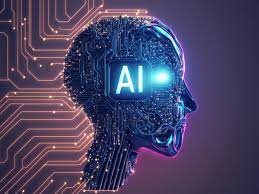
AS we step into 2025, the global landscape of artificial intelligence (AI) continues to evolve, promising exciting advancements and transformative changes across various industries.
Zimbabwe and other developing economies will naturally follow the trend and by the end of 2025, they will have harnessed AI technologies to drive economic growth, enhance education systems, and improve healthcare services.
Here are some key AI trends to watch this year:
Hyper-personalisation redefined
Hyper-personalisation is the use of artificial intelligence (AI) and real-time customer data to display relevant content, products, services, and information to each individual user or customer.
AI-powered personalisation is set to reach new heights in 2025. From streaming services predicting your next favourite show to fitness apps acting as virtual personal trainers, hyper-personalisation will extend beyond screens to influence real-time, day-to-day interactions.
This trend will create seamless, AI-driven ecosystems tailored to individual preferences, enhancing user experiences across the board.
In the retail sector, AI will personalise shopping experiences by suggesting products based on previous purchases and browsing behaviour.
- Embracing the future: AI trends to watch
Keep Reading
Healthcare apps will provide customised health advice and reminders, helping individuals manage their health more effectively. This deep level of personalisation will not only improve customer satisfaction but also drive brand loyalty and engagement.
Generative AI as a creative ally
Generative AI helps to create new artificial content or data that includes images, videos, music, or even 3D models without any effort required by humans.
Generative AI, which saw a rise in 2024, will become an indispensable creative co-pilot in 2025. Businesses are expected to rely on AI tools not just for drafting ideas but as a cornerstone of creativity in marketing, design, and beyond.
This will enable rapid production of unique content, helping companies stay competitive in a fast-paced market.
Marketing teams will use AI to generate compelling advertisements, social media posts, and even video content. In design, AI will assist in creating logos, layouts, and other visual elements, streamlining the creative process.
Writers and content creators will benefit from AI-generated suggestions and drafts, allowing them to focus on refining and perfecting their work. This collaboration between AI and human creativity will lead to innovative and engaging content across various platforms.
Decision intelligence will guide us
In 2025, decision intelligence will help businesses make smarter and quicker choices. Instead of just providing data, AI will analyse complex situations and give clear recommendations.
This will help companies run their operations more efficiently, save money, and keep customers happy.
Retailers will use AI to manage their stock better, ensuring that products are always available when customers need them. Banks and financial institutions will rely on AI to evaluate risks and make smart investment decisions.
In the healthcare sector, AI will support doctors in diagnosing illnesses and suggesting treatment plans based on patient information.
This kind of AI support will help organisations make well-informed decisions, leading to better results and greater efficiency.
AI as a sustainability enabler
Sustainability is becoming a trendsetter for businesses seeking long-term growth. AI will drive the adoption of eco-friendly practices, reducing waste and optimising resources with greater precision. From analysing sales patterns to ensure just-in-time production to optimising energy use, AI will play a crucial role in promoting sustainable practices.
Manufacturers will use AI to monitor and reduce energy consumption in factories, lowering their carbon footprint. Agricultural businesses will use AI to optimise water usage and reduce pesticide application, leading to more sustainable farming practices.
AI-driven supply chain optimisation will minimise waste and improve the efficiency of logistics operations. These efforts will help businesses meet sustainability goals while also improving profitability and operational efficiency.
Edge AI goes mainstream
Edge AI, which brings computation and data storage closer to the source of data, will go mainstream in 2025. This will enable faster processing and reduced latency, making it ideal for applications requiring real-time decision-making, such as autonomous vehicles and smart manufacturing.
In the automotive industry, edge AI will improve the performance and safety of autonomous vehicles by processing data from sensors in real-time.
Smart factories will use edge AI to monitor and optimise production processes, reducing downtime and increasing efficiency. In healthcare, edge AI will enable remote monitoring and diagnosis, allowing doctors to provide prompt care to patients.
This decentralised approach to data processing will drive innovation and improve the performance of AI applications across various sectors.
AI as a partner
AI will increasingly be seen as a partner to the workforce rather than a replacement. By automating repetitive tasks and providing insights, AI will free up human employees to focus on more creative and strategic work, enhancing productivity and job satisfaction.
In customer service, AI-powered chatbots will handle routine enquiries, allowing human agents to address more complex issues. In finance, AI will automate data entry and analysis, enabling accountants to focus on strategic planning and advisory services.
In manufacturing, AI-driven robots will perform repetitive tasks, allowing workers to focus on quality control and process improvement. This collaborative approach will enhance job satisfaction and create new opportunities for professional growth.
Ethical AI will shape reputations
As AI becomes more integrated into our lives, ethical considerations will take centre stage.
Companies will need to ensure transparency, fairness, and accountability in their AI systems to build trust with customers and stakeholders.
Ethical AI will not only shape reputations but also drive regulatory compliance and social responsibility.
Businesses will have to demonstrate how their AI systems make decisions, ensuring that these processes are free from bias and discrimination.
Organisations will need to implement robust data privacy measures to protect customer information. Transparency will be key, with companies providing clear explanations of how AI systems work and the impact they have on users.
By prioritising ethical considerations, businesses will build trust and loyalty among their customers and stakeholders.
Conclusion
These trends highlight the potential of AI to drive innovation, efficiency, and sustainability in 2025. As we embrace these advancements, it is crucial to navigate the ethical and practical challenges to ensure a positive impact on society.
Businesses and individuals alike must stay informed and adaptable, ready to harness the power of AI to enhance their lives and work.
By using AI responsibly and creatively, we can create a future that is both technologically advanced and socially responsible.
The promise of AI is immense, and as we step further into 2025, let us embrace the opportunities it presents with excitement and a commitment to ethical innovation. The journey ahead is bright, and the possibilities are endless.
Bangure is a filmmaker with a media degree and substantial experience in media production and management. He previously served as the chairperson of the National Employment Council for the Printing, Packaging, and Newspaper Industry. A dedicated enthusiast and scholar of artificial intelligence, Bangure combines his creative and technical skills to delve into innovative advancements. — info@hub-edutech.com.










